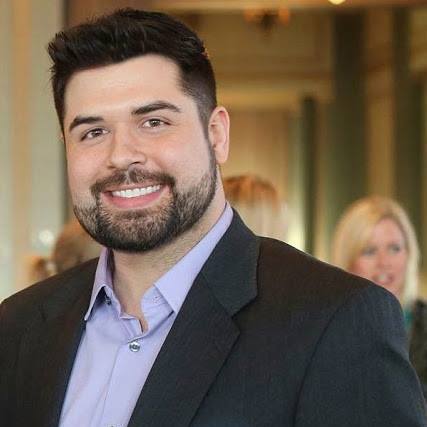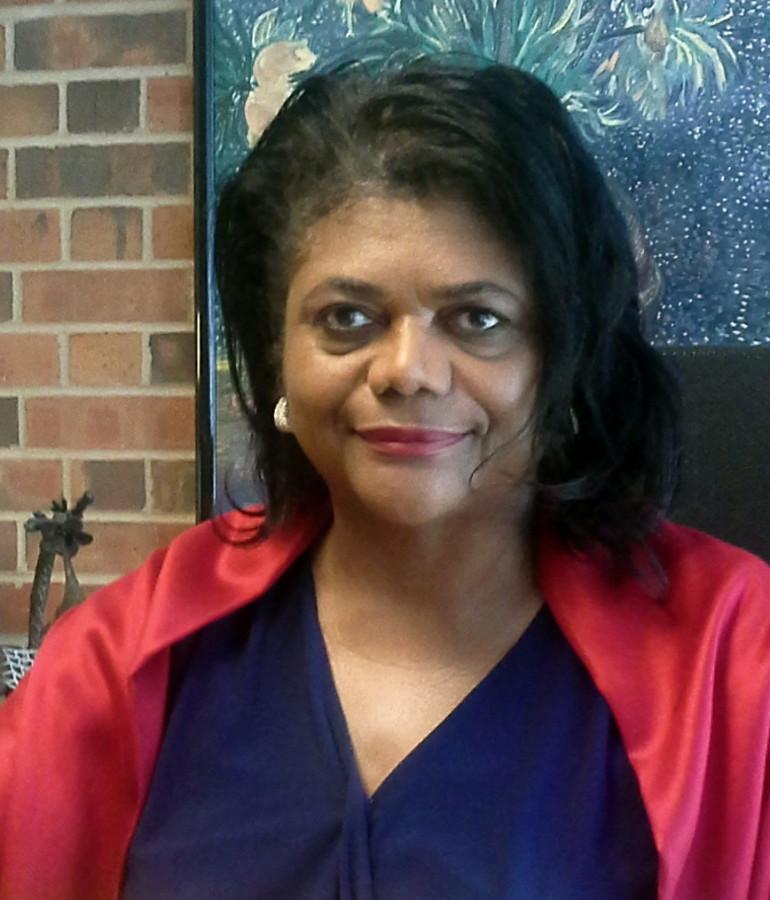IUS Center for Mentoring is a two way street
Mentors learn valuable life lessons from the students they help.
February 23, 2015
Starting college can be an overwhelming and isolating time. As a freshman or transfer student you might be without your established social networks, living in a new state or on your own for the first time in your life. Perhaps you are a non-traditional student, returning to campus later in life and now balancing school, career and family.
The good news is that as a Grenadier you are not alone. The IU Southeast Center for Mentoring offers every IU Southeast student access to a diverse network of peers, professors and alumni that are available to partner with you in acclimating and navigating through your college experience.
The Center for Mentoring was founded in 1995 by June J. Huggins, a soft spoken, deeply committed and humble educator. Huggins has been at the helm of the Center for Mentoring as director since its inception 20 years ago and has devoted herself to program.
There are 126 active mentors in
the mentoring program – which include faculty, staff and alumni. Students who are being mentored are called “mentees” and as of 2013, there were 191 mentees participating in the program.
“They are giving them the best of their experience so that the student can avoid possible pitfalls in the future,” Huggins said of the mentors in the program.
For Nicholas Moore, a marketing major in his junior year here at IU Southeast, the mentoring program has provided him with affirmation that, even when living with a chronic illness, it is possible to achieve your goals.
Due to his personal health challenges, as well as, struggling after high school to figure out what his true north passion was, Moore has spent the better part of a decade traveling and working on his degree.
Prior to joining the mentoring program, he had become frustrated and found himself contemplating giving up. But Moore’s mentor, Chris Bjornson, Associate Professor of Accountancy at IU Southeast, helped him to develop a strategic approach.
“His advice has been to take it one step at a time. Don’t rush. Cross your t’s.” Moore said.
Bjornson has helped Moore develop a working strategy to tackle day to day challenges and demonstrated belief in Moore’s personal capability.
“We all live with our struggles and that is a part of college,” Moore said. “You have to learn to balance your life so that you can manage the challenges that life presents.”
For Kimberly Pelle, a former mentee and Coordinator of Non-Traditional Student Programs & Parent Family Programs, her partnership as a mentor in the program began 19 years ago.
“I could only hope that I could do the same for someone else,” Pelle wrote in an email.
She said the qualities of a good mentor include a willingness to share one’s knowledge, an overall caring personality and the ability to listen.
“Listening is the greatest gift you can give to another person,” Pelle wrote. “Really hearing what a person says, empathizing with them and being available is what mentoring is all about.”
Pelle also views mentoring as a two way street.
“I get to meet students from different backgrounds and cultures. We all learn a lot from each other when we open our hearts and our minds,” Pelle wrote. “I help the students reach their goals; they help me grow and become a better person.”
Pelle pointed out that the connection can spread from the mentor to mentee relationship into friendship with other mentored students.
“Right now I am working with three mentees and I love the fact that they have connected with each other,” Pelle wrote. “What may feel awkward at first can be the start of an everlasting friendship.”
Huggins said that this connectivity is a crucial cornerstone of the program. And that many students enrolled in the mentoring program will usually keep the same mentor through graduation.
“They have got to feel connected to either an individual or to a campus organization, to identity with our campus and have a sense of belonging,” said Huggins. “If they have those three things they are less likely to walk away.”
Huggins said that students who are mentored have a higher retention
rate for the mentoring program and with IU Southeast overall – resulting in higher graduation rates.
The Center began tracking attrition and graduation rates in 2003. According to a report prepared by OIRA, the mentoring program’s undergraduate retention rates in 2012 were 12 percent of all bachelor degrees awarded. And in 2013, students in the IU Southeast mentoring programs achieved a 17.9 percent overall graduation rate, with minorities holding 6.2 percent of that rate.
In addition to providing individual student mentoring at college level, the Center for Mentoring has developed several programs that reach out into the local community.
Which include a Student Outreach College Preparatory Program that targets students in grades 8-12 at New Albany High School, a College Preparatory Initiative which expands the Student Outreach College Preparatory Program into elementary and middle schools, and The Upward Bound Grant Program which is a year round intervention program that reaches out to at-risk middle and high school students.
“We also have our Access to Success program. We saw the need to work with more under represented or at-risk students,” said Huggins.”[Because] Minority students are twice as likely to graduate if connected to mentoring.”

The Access to Success program is designed to offer transition assistance to students who are considered First Generation (the first in their family to go to college), minority, adult learners (25 and over), and 21st century students (scholars who have received the funds to attend, but have no support system).
Through all of these programs, the ability of the Center for Mentoring to affect academic success, personal growth and encourages a “pay it forward” mentality for all involved, on campus or off, is constant and evolving.
Huggins said she knows that the program is having a lasting impact on the community because of the rate of mentees returning to be mentors.
“Every year I get a good number of students who apply as mentors and say that they want to help someone else because they were helped,” said Huggins. “You see the leadership and development as they mature and they see the value and the benefits they reap from it.”
When Huggins was asked about mentors in her own life, she said there is one that still has an impact today.
“She was a minister at church,” Huggins said. “Truly impacted me to always treat people with dignity and respect. You can’t fail with that.”
Mentoring holds different levels of meaning for each person who experiences it. For some it is a process to work through – such as in the case of high school mentees who are learning new skills. For others it is an active form of engagement that connects you and encourages – perhaps even pushes you – to remain engaged with your academic goals, believe in your potential and learn how to face and overcome challenges.
The foundation of mentoring is basic human connectivity. The power of personal engagement. The positive impact of people working together and building a lasting, unforgettable legacy for all involved.
“My goal has always been to help students reach their potential,” Huggins said. “I feel honored that I can, in some small way, go on with the students as they leave here, What greater honor than to invest or give your all to people.”
For more information on the IUS Center for Mentoring, contact June J. Huggins in University Center South, Room 205. Or by phone at (812) 941-2516 or email at mentoring@ius.edu.


